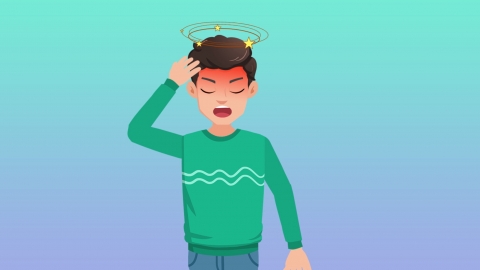What causes low blood pressure in patients with cerebral infarction?
Cerebral infarction refers to cerebral infarction. Low blood pressure in patients with cerebral infarction may be caused by aging, postural changes, physical frailty, myocardial infarction, heart failure, etc., and can be managed according to different situations. If physical discomfort occurs, it is recommended to visit a hospital as soon as possible and follow medical advice for treatment.

1. Aging: Patients with cerebral infarction are mostly middle-aged and elderly individuals. With aging, vascular elasticity declines and cardiac function decreases, which can affect blood pressure regulation mechanisms, leading to a tendency toward lower blood pressure. Generally, there are no obvious specific symptoms. It is recommended to appropriately increase intake of foods rich in protein, vitamins, and minerals, and engage in moderate gentle exercises, such as walking or Baduanjin.
2. Postural changes: When patients change positions, such as from sitting to standing, there may be a temporary drop in blood pressure. Due to nervous system damage, autonomic regulation ability may be affected, making orthostatic hypotension more likely. Patients are encouraged to change positions slowly, avoid sudden standing, and wearing compression stockings can help promote blood return and reduce the occurrence of orthostatic hypotension.
3. Physical frailty: Some cerebral infarction patients have a frail physique, with relatively insufficient blood volume in the body, resulting in lower blood pressure levels. Common manifestations include physical fatigue and pale complexion. It is recommended that these patients increase nutritional intake and consume more calorie- and nutrient-rich foods, such as milk, eggs, and legumes, to increase blood volume and raise blood pressure.
4. Myocardial infarction: Coronary artery blockage leads to insufficient blood supply to the myocardium, resulting in myocardial necrosis and decreased cardiac pumping function, which in turn causes reduced blood pressure. Patients often experience symptoms such as chest pain, chest tightness, and palpitations, with pain radiating to areas such as the left shoulder and inner left arm. Patients can take medications such as aspirin enteric-coated tablets, clopidogrel hydrogen sulfate tablets, and atorvastatin calcium tablets under a doctor's guidance to promote recovery.
5. Heart failure: Cerebral infarction may affect cardiac function, compounded by pre-existing heart diseases and other factors, leading to heart failure, where the heart cannot effectively pump blood, resulting in decreased blood pressure. Main symptoms include dyspnea, fatigue, edema, etc. It is recommended to follow medical advice and use medications such as furosemide tablets, digoxin tablets, captopril tablets, etc., for improvement.
References:
[1] Zhai Zhenfeng, Zhao Yue. Analysis of influencing factors in hypertensive patients with cerebral infarction and diagnostic efficacy of homocysteine, D-dimer, and procalcitonin in hypertension complicated with cerebral infarction [J]. The Medical Journal, 2025, 10(02): 109-111.
[2] Xin Jun, Zhang Wei, Ma Xunwei, et al. Relationship between CT perfusion blood-brain barrier permeability parameters and severity of cerebral infarction in patients with acute cerebral infarction [J]. Journal of Xinjiang Medical University, 2024, 47(11): 1481-1485.







